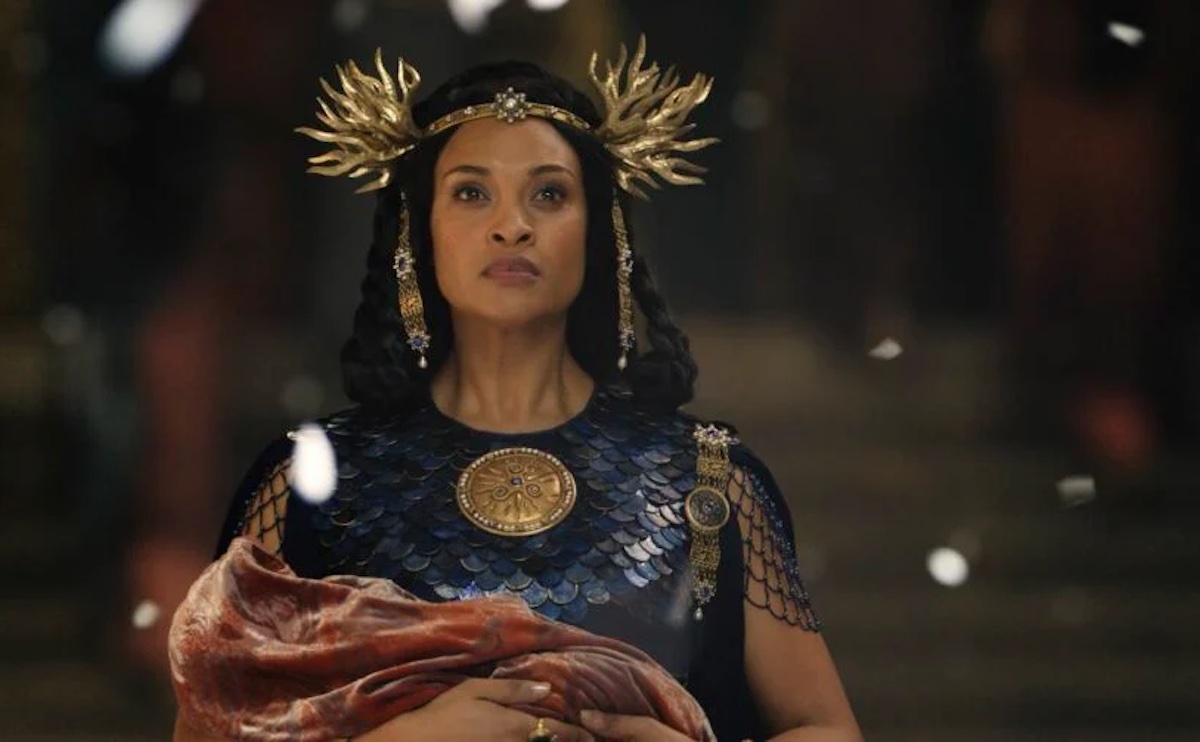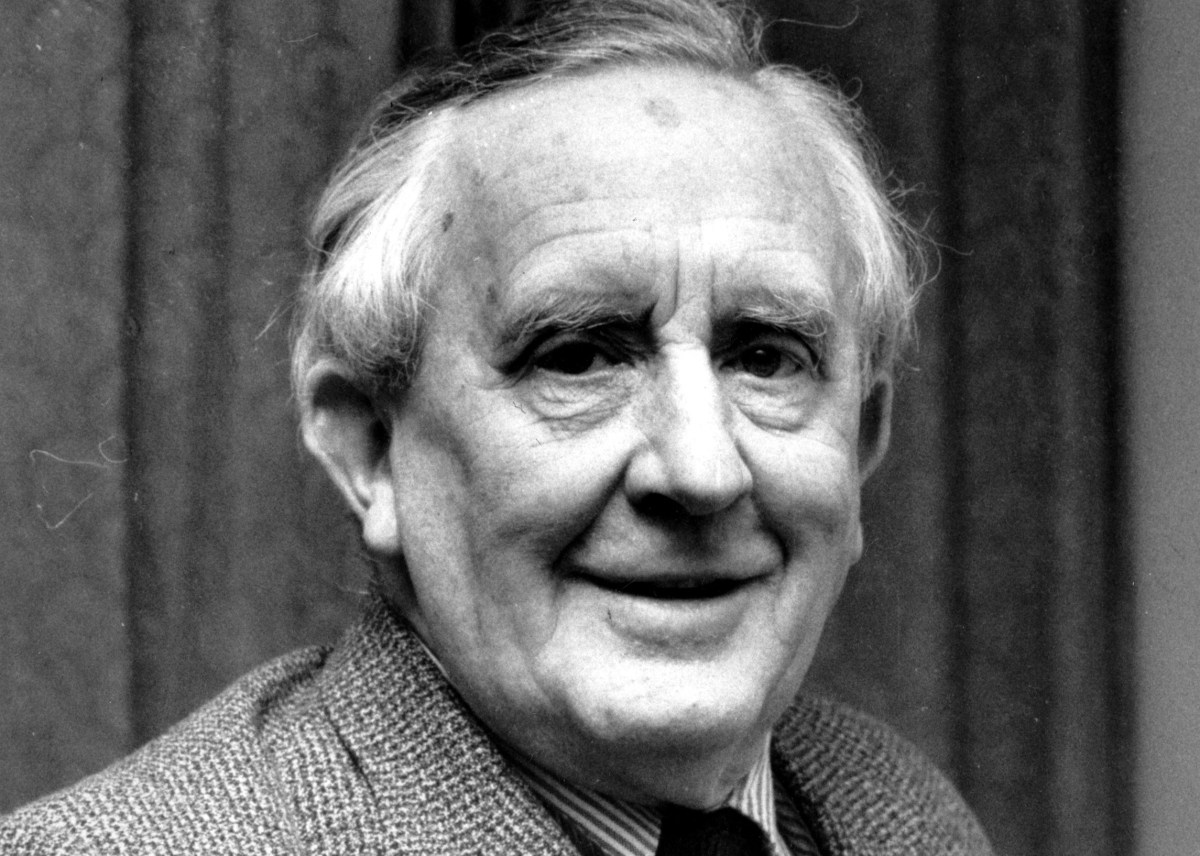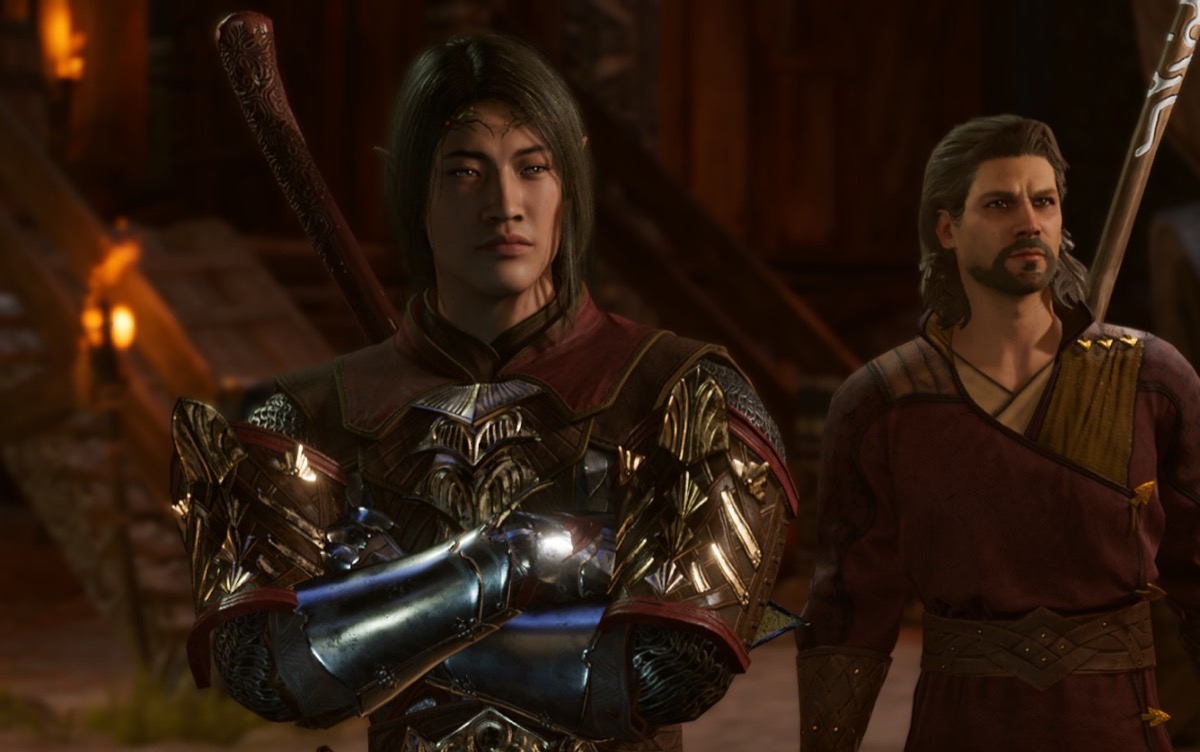Concerned About Diverse Fantasy Characters? Here’s What J.R.R. Tolkien Actually Said About Race

To the surprise of no one, except, perhaps, the blissfully ignorant, lots of people were upset about the fact that Amazon’s newest series, The Rings of Power, features a diverse cast. And by diverse, these people meant everything from POC, to (yucky!) women, and even, per Elon Musk, emasculated men.
Ha! Ha ha! God forbid men be anything other than machismo know-it-alls.
As usual, anything Musk-related isn’t worth looking into on a deeper level, but his particular criticisms did allow a vantage point into the criticisms of others. A lot of people seem to think they have a very intimate understanding of what Tolkien “wanted,” and therefore, they used this “understanding” to justify their attacks on the diverse casting. I don’t know where this intimacy came from—a childhood watching Lord of the Rings, or perhaps a memory of their father reading them The Hobbit, who knows—but unless their knowledge came from the ghost of J.R.R. Tolkein, himself, haunting their childhood bedroom, I think it’s time we set aside our biases and just look at the facts at play.
I studied History with a focus on the history of race in college, and I’ll be the first to admit that my own biases got in the way of me fully understanding Tolkien’s perspective. I wrote him off as an “old-timey racist” and didn’t think much more of it. But then I actually, you know, did some research, and I found that his perspective was much more nuanced than we give him credit for. AND, at the same time, his biases at the time paved the way for our own perspectives on “fantasy races” to be riddled with assumptions and expectations.
So: what did Tolkien actually say about race? He said that he wasn’t a racist. And, he said some things that, by modern standards, are inarguably racist. But let’s get more into it.
The Specific Quotes

Let’s start with a very loaded quote that I’ve used at length. In one of his private letters, Tolkien had this to say about Orcs in particular:
The Orcs are definitely stated to be corruptions of the ‘human’ form seen in Elves and Men. They are (or were) squat, broad, flat-nosed, sallow-skinned, with wide mouths and slant eyes: in fact degraded and repulsive versions of the (to Europeans) least lovely Mongol-types.
Letter #210
In citing this quote, I’ve had some considerable backlash from people who don’t want to believe that this was Tolkien making a dig at “Mongol-types.” They try to nitpick the ever-loving shit out of his wording in order to absolve him. But there is really no other way of interpreting this quote: he lived in a time when it was okay to make digs at “Mongol-types,” specifically using the terminology surrounding “Mongol-types,” and therefore, the only good faith argument you can make in this instance is that he wrote it in innocent ignorance. It was the era of “Yellow Peril,” after all. Just as it is normalized for Americans to make jokes about North Korea, so too, was it normal for his era of men to joke about those damnable “Mongol-types.”
If you want some real-world application of this mode of thinking, in case you still need convincing, let me get a little TMI: I have a blue spot on my body that, growing up, was referred to as a “Mongolian Blue Spot.” I didn’t really question this terminology until I was older, and decided to look it up. Turns out, it was named by a German man who barely predated Tolkien, Erwin Balz, who had children with a Japanese woman and realized that they, too, had inherited this spot. “Mongolian” was, more or less, just a catch-all term at the time for Asian people. And as Yellow Peril spread, “Asian” and “Mongolian” became a generalized term for “Other.”
Speaking of racial mixing, though: Tolkien had the Ent Treebeard say something very suspicious in The Two Towers.
It is a mark of evil things that came in the Great Darkness that they cannot abide the Sun; but Saruman’s Orcs can endure it, even if they hate it. I wonder what he has done? Are they Men he has ruined, or has he blended the races of Orcs and Men? That would be a black evil!
Tolkien, The Two Towers
Now, this quote is a tough one. It could go one of two ways: it could lend into the fears perpetuated by “scientific racism” at the time, that the mixing of the races was a sign of all society’s woes. Or, it could go the other way, the way of his diehard Christianity, in which Middle Earth was meant to be divided into clear boundaries of Right and Wrong, Light and Dark, Good and Evil. I’m inclined to lean more towards the latter. While these things are most likely intertwined, I do believe he did so unconsciously and without a knowing inference of scientific racism, because ultimately, Tolkien was vocally against all Nazi racial beliefs—including scientific racism.
Tolkein and Nazi ideology
Yes, here’s where things get a little sticky: for all his odd fantasy-racial posturing, intentional or otherwise, Tolkien was vehemently anti-Nazi in every conceivable way. At the same time, he was very, very admiring of Northern cultures, which as led some to believe that he actually shares Nazi ideologies of “racial purity”—i.e., Aryan Superstars (elves) vs. “The Other” (orcs and etc.).
What he actually said, in regards to this matter, was this, coined from an interview from journalists Charlotte and Denis Plimmer:
[The poet] Auden has asserted that for me ‘the North is a sacred direction’. That is not true. The North-west of Europe, where I (and most of my ancestors) have lived, has my affection, as a man’s home should. I love its atmosphere, and know more of its histories and languages than I do of other parts; but it is not ‘sacred’, nor does it exhaust my affections. I do have, for instance, a particular fondness for the Latin language, and among its descendants for Spanish. That is untrue for my story, a mere reading of the synopses should show. The North was the seat of the fortresses of the Devil [ie. Morgoth].
Letter #294
And if I’m not mistaken, there’s a touch of defensiveness in this letter. Tolkien was aware that people could draw nasty conclusions from his beliefs and his writing, and that bothered him. In other letters penned to people in his life, especially his son Christopher, Tolkien shared very adamantly anti-racist stances on things going on in the world. Whatever depictions came about during his writing seemed to stem from his natural writing process.
What I’ve therefore deduced is this: Tolkien has more in common with a modern liberal than a modern racist, and therefore, his opinions on race were established in good faith, but practiced clumsily—through the pen of a man who’d never had to question his place in the world nor his beliefs in earnest.
In short: Tolkien would be mortified to learn that people are using his words as an excuse to be racist.
So, then…how did we get here?
Critical Elf Theory

It cannot be denied that Tolkien was a literary genius, but even a genius can’t predict the future, and therefore, even a genius is prone to making mistakes. The way he depicted the races of Middle Earth—the impeccably perfect elves, the silly and hairy hobbits, the brutish and otherly orcs—would inevitably go on to inspire the trajectory of fantasy races from then on.
Without sounding crass, let’s be real: the people who went on to establish fantasy as a popular genre, with direct inspiration from Tolkien, were a bunch of white guys who were never really challenged to think outside their spheres of existence. Therefore, they took some perceived stereotypes and ran with them, not thinking of the consequences. If Tolkien never intended for orcs to be “Other” races, well, too bad, because now they’re representing both Black and Asian people—both of whom are wildly “other” to sheltered white guys in the 70s.
So, where does this leave us?
Look, just generally dunking on a bunch of old nerds isn’t entirely fair, and we can thank the Warhammer franchise for trying to bring some level of nuance to the Orc dilemma via making their skin green instead of, you know, “sallow.” But fair or no, I think the point is fairly clear: using Tolkien as an excuse to precipitate archaic racial stereotyping betrays, not just a lazy interpretation of his texts, but the modern racism of upholding the status quo. In other words, “not getting political.”
In regard to The Rings of Power and the people are upset at the fact that there are Black elves and dwarves, because it’s “not faithful to the text,” come on. It’s the Little Mermaid bullshit all over again. What should really matter is how well the story carries the spirit of the original text, not the archetypal race-classing that was a consequence of the times. To pretend otherwise is to just admit that, in your mind, racism is academic, and fantasy is purely medieval.
But it’s neither of those things. Racism is a modern construct used to structurally enable unequal power balances, and fantasy is ultimately just a reflection of reality, but fantastical. And therefore, it can be whatever you want it to be, and in the spirit of societal progression (which is what Tolkien wanted, FYI), it SHOULD be used to advocate for a more diverse world. I’ve been told that asking for more Asians in fantasy stories is just begging for historical inaccuracy—and to that I say, who fucking cares? What is the point of being that sort of “historically accurate” in fantasy, if not to make shallow, dipshit excuses for upholding the status quo? I’m allowed to want cool things, too—I don’t merely exist for your own near-sighted perceptions of the world.
So, to tie it all together, Tolkien never intended for Peter Jackson’s paste-fest to be the norm, and he’d be horrified to see what sort of pea-brained discussions are being precipitated around his intellectual property. The best thing you could do for your Fantasy Daddy (and, more importantly, for yourself) is to live and let live. And if you want further reading, I highly recommend hearing what Sci-Fi author NK Jemisin has to say on the subject.
(Featured Image: Amazon)
Have a tip we should know? [email protected]
